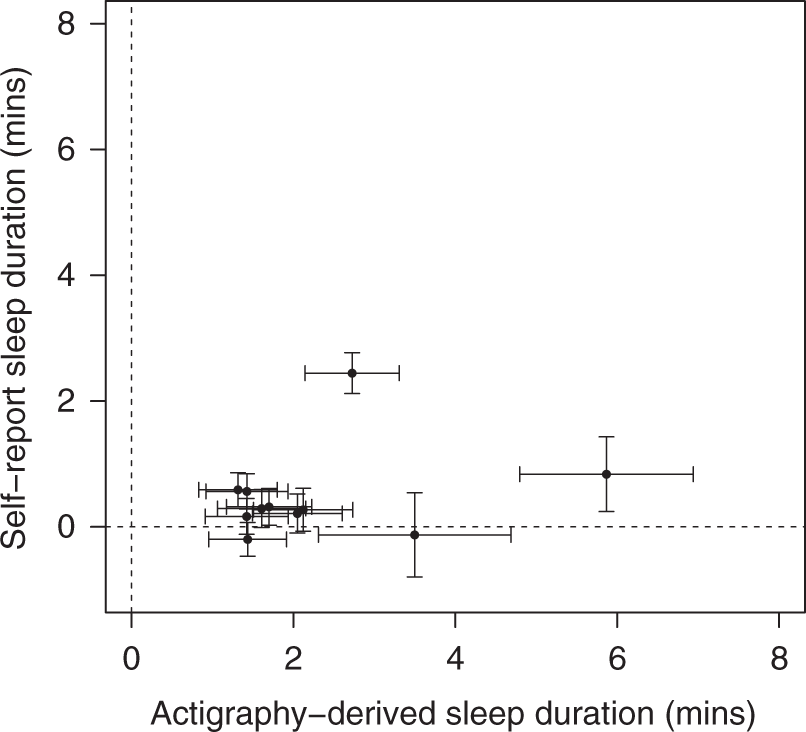The correlation was created using 85,670 participants of UK Biobank and 5,819 individuals from three other studies, who wore accelerometers (e.g. Fitbit) which recorded activity levels continuously. They wore the accelerometers continuously for seven days which provides more accuracy than people who write how well they slept diaries.
.
The authors created ten new genetic links with sleep duration and 26 with sleep quality. Among the genomic regions uncovered is a gene called PDE11A. An uncommon variant of this gene affects not only how long you sleep but your quality of sleep too. The gene has previously been identified as a possible drug target for treatment of people with neuropsychiatric disorders associated with mood stability and social behaviors.

Comparison of SNP effect estimates on accelerometer and self-report sleep duration. The effects for 11 genetic variants associated with accelerometer-derived sleep duration against effect estimates from a parallel GWAS of self-report sleep duration are presented. Error bars represent the 95% confidence intervals for each effect estimate. Credit: DOI 10.1038/s41467-019-09576-1
The study also suggests that among people with the same hip circumference, a higher waist circumference resulted in less time sleeping, although the effect was very small - around 4 seconds less sleep per 1 centimeter waist increase in someone with the average hip circumference of around 100 centimeter.
They believe that collectively, the genetic regions linked to sleep quality are also linked to the production of serotonin - a neurotransmitter associated with feelings of happiness and wellbeing. Serotonin is believed to play a key role in sleep cycles and there is speculation it may help promote deeper and more restful sleep.
The group also found further evidence that Restless Leg Syndrome is linked to poorer sleep from the genetic variants they found to be associated with sleep measures derived from the accelerometer data.






Comments